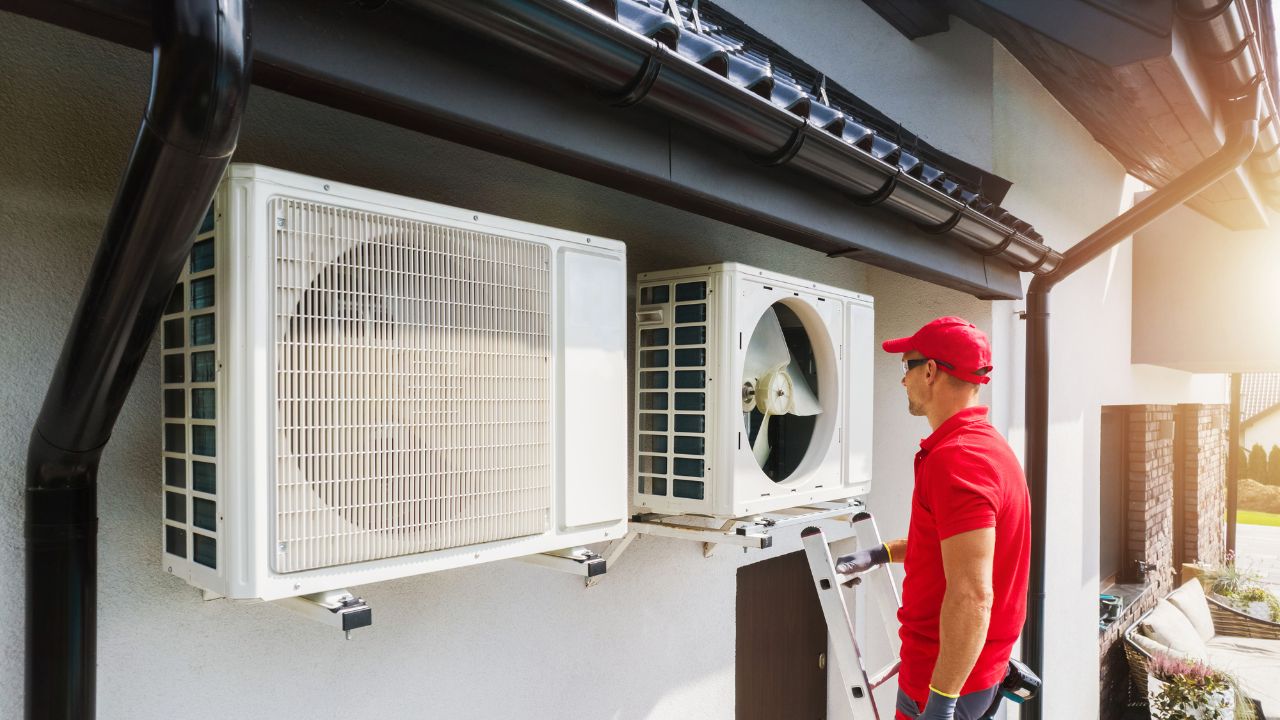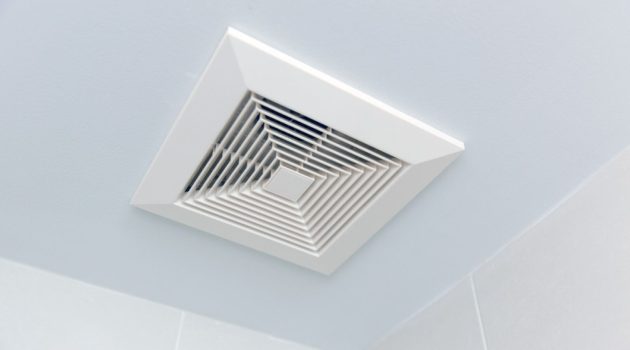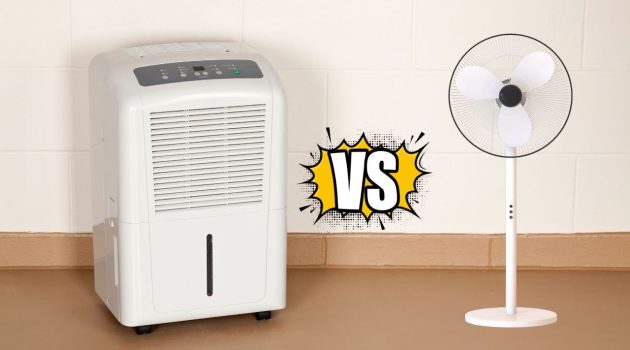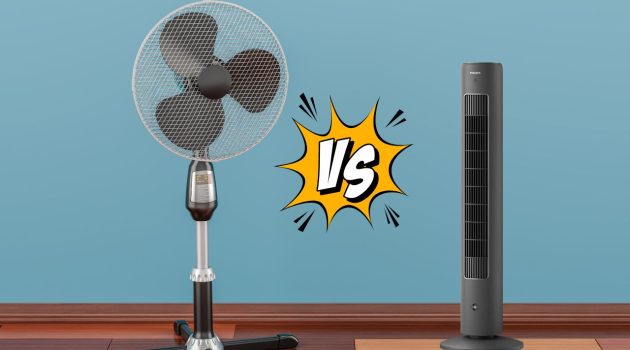Heat pumps are becoming increasingly popular as a home heating and cooling solution.
Thanks to their energy-efficient design and ability to provide heating and cooling, they are a perfect choice for many homeowners.
However, as with any home improvement decision, weighing the pros and cons before investing in a heat pump system is essential.
Let’s dive into some of the advantages and disadvantages of heat pumps to give you a better understanding of whether they’re the right choice for your needs.
By considering both the pros and cons of heat pumps, you’ll be better equipped to decide whether this heating and cooling solution is the best fit for your home.
Stay tuned to learn more about this innovative technology and how it can benefit or challenge your home comfort needs.
1. Understanding Heat Pumps
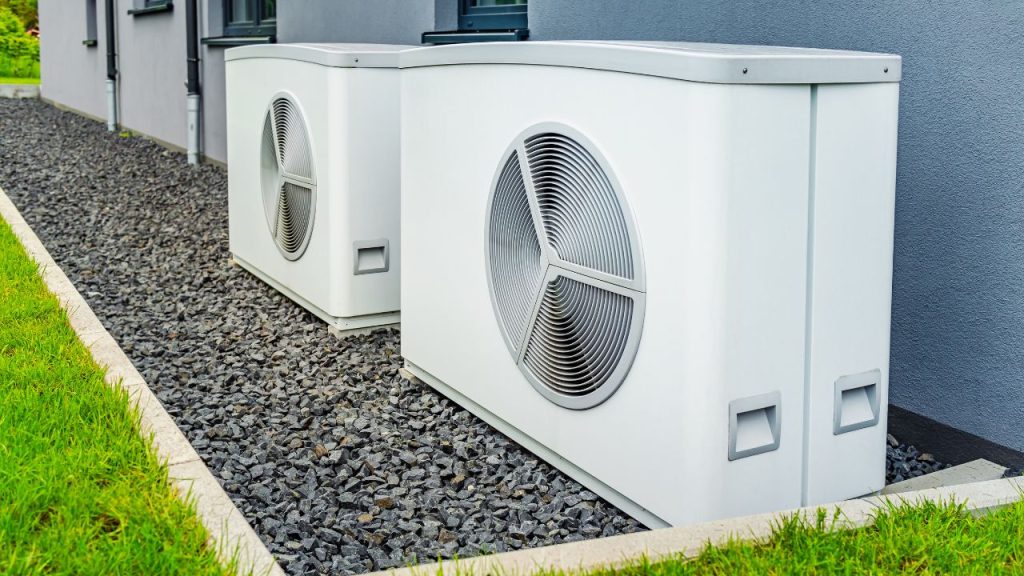
Heat pumps can be a great solution for your heating and cooling needs, offering many benefits like lower energy costs and reducing environmental impact.
The technology behind Heat Pumps
Heat pumps transfer heat from a colder area to a warmer one, making them perfect for heating and cooling your home.
They do this through the refrigeration cycle, which involves refrigerant circulation between an indoor and an outdoor unit.
The refrigerant absorbs heat from the source (such as outside air or the ground) and releases it into your home.
This highly energy-efficient process makes heat pumps a cost-effective and eco-friendly option for your home.
Types of Heat Pumps
There are various types of heat pumps available, each with its unique characteristics and suitable applications:
- Air source heat pumps (ASHPs): These heat pumps extract heat from the outside air and transfer it inside your home. ASHPs can provide heating and cooling, making them a versatile choice for various climates.
- Ground source heat pumps (GSHPs): Also known as geothermal heat pumps, GSHPs take advantage of the earth’s stable temperature to provide heating and cooling. They are highly efficient and environmentally friendly but require a larger upfront investment because of the more complex installation process.
- Water source heat pumps: This heat pump uses a body of water (such as a lake or pond) as the heat source. Depending on the season, the water’s energy is transferred into your home as warm or cool air. Water source heat pumps are more energy-efficient than traditional systems, which helps save on heating bills and reduces environmental impact.
- Air-to-air heat pumps: These heat pumps only provide heating and cooling for the air within your home. They are highly efficient and can be a more affordable option than other heat pump types, such as GSHPs.
READ MORE: Best Ways to Minimize AC Use This Summer
2. Pros of Heat Pumps
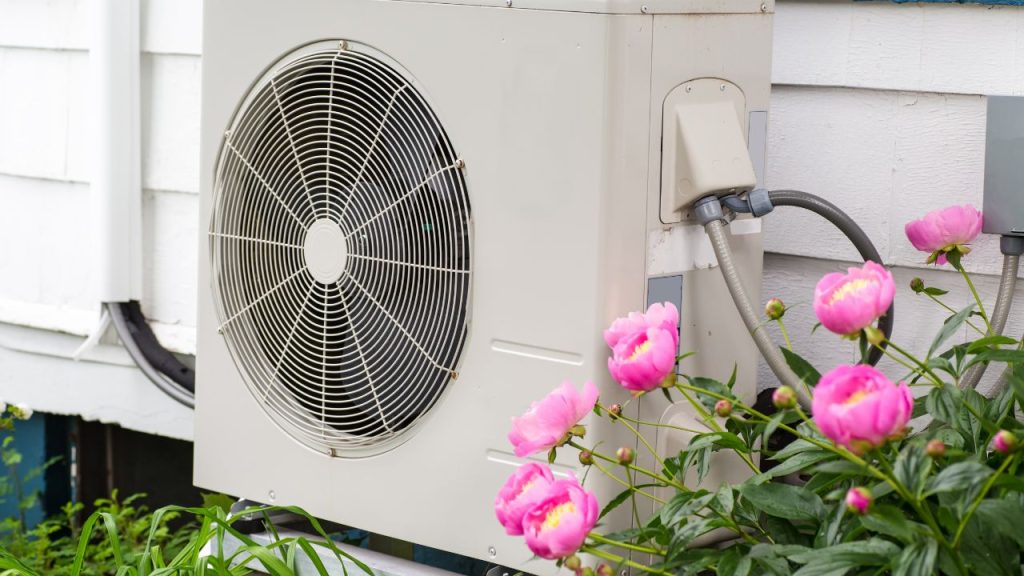
Efficiency and Savings
Heat pumps are known for their high efficiency, with some models boasting an efficiency of 100% to 400%.
This means they can produce more heat than the electrical energy they consume.
As a result, you can expect lower running costs compared to traditional heating systems, helping you save on your energy bills.
Moreover, heat pumps can also serve as an air conditioner in the summer months, further contributing to your overall energy savings.
Environmental Impact
Heat pumps are a great choice if you’re looking for environmentally friendly heating options.
They don’t rely on fossil fuels for operation, meaning they have lower carbon emissions than conventional heating systems.
Instead, heat pumps extract heat from the air, ground, or water to heat your home, and in doing so, they help reduce your home’s overall carbon footprint.
You’re taking a step towards a greener future by choosing a heat pump.
Flexibility and Comfort
With various types of heat pumps available, you can choose the system that suits your needs.
Some heat pumps can produce warm air and warm water, depending on your preference.
Additionally, they can be used for floor and wall heating, providing consistent and comfortable temperatures throughout your home.
As an added bonus, heat pumps can also function as dehumidifiers, which can help improve your home’s air quality, making it fresh and comfortable.
Durability and Longevity
When investing in a new heating system, you want it to last.
Heat pumps are known for their durability and long lifespan, often lasting up to 20 years or more when well-maintained.
Their low maintenance requirements make them an attractive option for homeowners who want a heating system that will stand the test of time.
In the long run, selecting a heat pump can provide reliable performance and peace of mind.
READ MORE: How to Set Up an Effective Study Room at Home
3. Cons of Heat Pumps
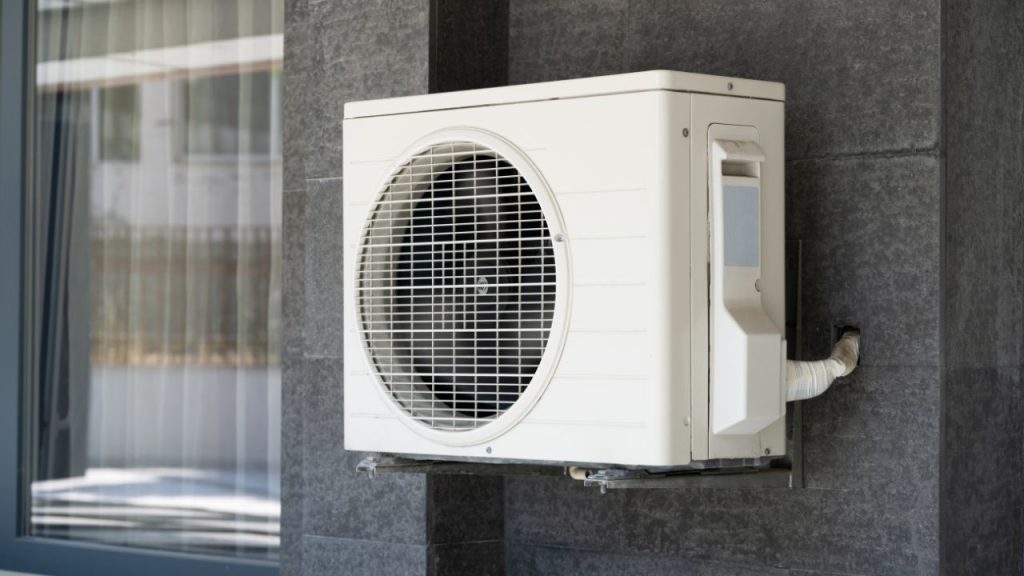
Initial Investment and Installation
Although heat pumps offer long-term energy savings, you should be prepared for a higher upfront cost.
The price of a heat pump system ranges from $4,000 to $8,000, depending on the size and model.
On top of the equipment costs, the installation process can be relatively expensive.
This is due to factors like the need for proper sizing, ductwork, and the skills of a professional HVAC technician.
So, remember that this initial investment might be more significant than what you’d expect for a traditional heating or cooling system.
Performance in Colder Climates
Heat pumps are generally more efficient in moderate weather conditions. However, their performance might be compromised in colder climates.
Heat pumps become less efficient when the outdoor temperature drops below freezing because they struggle to extract heat from the cold air.
In such cases, you may need a backup heating system to keep your home warm and cozy.
There may be better options than a heat pump if you live in an area with harsh winters.
Maintenance Requirements
Like any other HVAC system, heat pumps require regular maintenance. This includes cleaning or replacing filters, checking refrigerant levels, and inspecting the electrical components.
Although these maintenance tasks are similar to those of a traditional furnace or air conditioner, maintaining a heat pump can be more demanding.
You must consult your system’s manual or a professional HVAC technician to ensure you take all the necessary steps to keep your heat pump in good working order.
Remember that regular maintenance helps improve your system’s efficiency and prevents potential issues that could lead to costly repairs.
READ MORE: Refrigerator Troubleshooting Issues: Quick Solutions for Common Problems
4. Heat Pumps Vs. Other Heating Systems
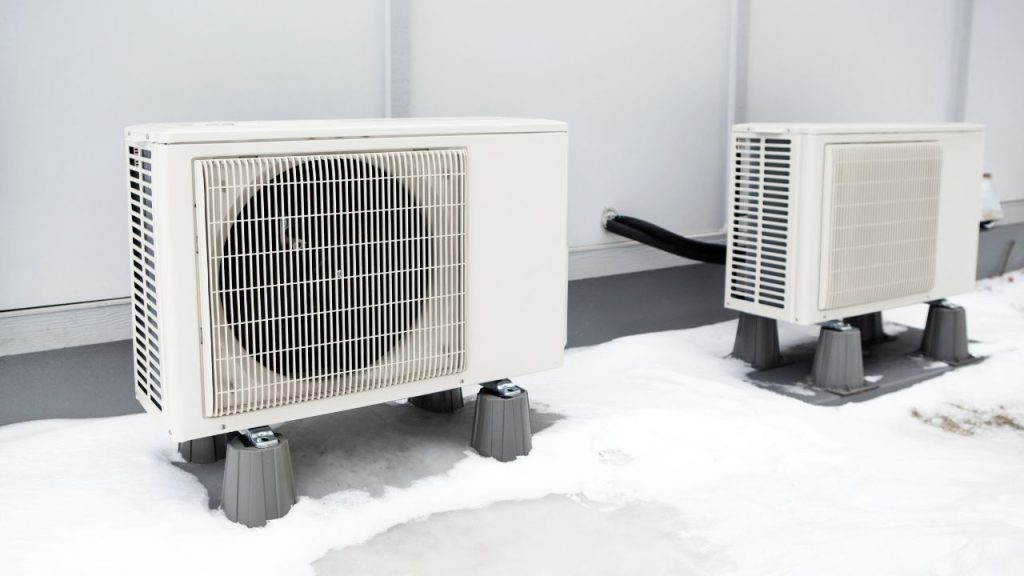
Heat Pumps Vs Furnaces
Heat pumps and furnaces are two common methods of heating your home.
A heat pump extracts heat from the outside air, even in the coldest temperatures, and transfers it into your home.
On the other hand, a furnace generates heat by burning fuel, such as natural gas, propane, or oil.
- Cost Efficiency: Heat pumps are generally more energy-efficient than furnaces, especially electricity-powered ones. However, the upfront cost of heat pumps can be higher than that of a gas furnace.
- Durability: Furnaces often last longer, with lifespans around 15-20 years, whereas heat pumps typically last 10-15 years.
- Maintenance: Heat pumps require less maintenance than furnaces, as they don’t have filters that need regular replacement.
Heat Pumps Vs. Boilers
Boilers generate heat by heating water or steam and circulating it through your home’s radiator system.
Like furnaces, boilers can operate on multiple fuel types like natural gas, propane, or oil.
- Energy Efficiency: Heat pumps are more energy-efficient compared to boilers, especially those utilizing fossil fuels. They consume less energy and often have lower energy bills.
- Space Requirements: Heat pumps take up less space, as boilers often require separate areas for storing fuel and an extensive piping system.
- Safety: Heat pumps are generally safer to use since boilers can pose risks from leaks or the release of carbon monoxide.
Heat Pumps Vs. Air Conditioners
While heat pumps can heat and cool your home, air conditioners are explicitly designed to cool the area.
They function by removing heat from your home and releasing it outside.
- Functionality: Heat pumps offer year-round comfort, providing heating and cooling options, whereas air conditioners help keep your home cool during warm months.
- Energy Efficiency: Since heat pumps move heat rather than generating it, they tend to be more energy-efficient than most air conditioners. However, the difference in efficiency depends on the specific models and energy sources.
- Temperature Flexibility: Air conditioners usually work best in moderate climates, while heat pumps can provide efficient heating even in colder climates. However, selecting a heat pump suitable for your region’s temperature range is crucial.
READ MORE: Best Heater-Humidifiers Combo
5. Choosing the Right Heat Pump for Your Home
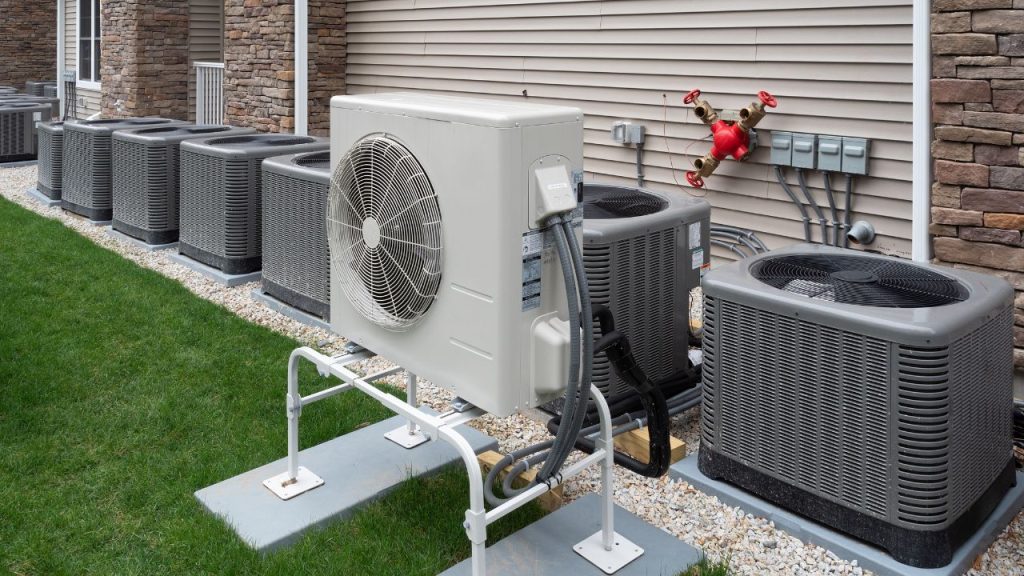
Assessing Your Home’s Needs
Assess your home’s specific needs to select the perfect heat pump. Think about the size of your house, the climate you live in, and your desired comfort level.
Choosing the right size heat pump to heat and cool your home is important.
A heat pump that is too small will need help to maintain a comfortable temperature, while one that is too large will cycle on and off frequently, wasting energy and increasing wear and tear on the system.
Comparing Energy Costs
When considering a heat pump, it’s essential to compare energy costs.
Heat pumps can be more energy-efficient than traditional heating and cooling systems, with many modern heat pumps achieving between 170 and 330 percent efficiency.
However, the efficiency of a heat pump relies heavily on outside temperatures, so make sure to research the performance of different models in various climate conditions.
Remember that an energy-efficient heat pump will save you money in the long run through reduced energy bills.
Considering the Environmental Impact
Take into account the environmental impact of your choice.
Heat pumps are cost-effective and environmentally friendly, as they can significantly reduce your home’s energy consumption and lower your carbon footprint.
When selecting a heat pump, look for a high Seasonal Energy Efficiency Ratio (SEER) and Heating Seasonal Performance Factor (HSPF) rating, as these metrics indicate better overall efficiency and environmental performance.
You can choose the right heat pump by carefully assessing your home’s needs, comparing energy costs, and considering the environmental impact.
And remember, choosing an energy-efficient and environmentally friendly heat pump will benefit your wallet and the planet.
READ MORE: Fan vs AC Cost: Comparison for Budget-Conscious Shoppers
Frequently Asked Questions
What are the energy efficiency differences between heat pumps and traditional HVAC systems?
Heat pumps are generally more energy-efficient than traditional HVAC systems because they move heat instead of generating it. This means you can typically use less energy to heat or cool your home with a heat pump than a conventional system. However, remember that heat pump efficiency can decline in extreme temperatures, so selecting a suitable heat pump based on your area’s climate is important.
How do heat pumps perform in extreme temperatures?
Heat pumps can struggle in extreme temperatures, particularly when it comes to heating during very cold weather. The efficiency of air-source heat pumps declines as the outdoor temperature decreases. In such cases, you may need to rely on a supplemental heating system. Some heat pumps, called cold climate heat pumps, are designed for better performance in colder temperatures.
Are heat pumps more suitable for specific climates?
Heat pumps are generally more suitable for moderate climates with milder winters. They work best in temperatures above freezing, efficiently extracting heat from the outdoor air. However, with technological advancements, cold-climate heat pumps are becoming available for areas with colder winters.
What are the maintenance requirements and costs of heat pumps?
Heat pumps require less maintenance than traditional HVAC systems, but you still need to perform regular checkups to ensure optimal performance. Simple tasks like cleaning the filters and checking the refrigerant levels should be done periodically. Generally, a professional maintenance check should be conducted every two to three years. The costs for maintenance may vary depending on the type of heat pump and regional factors.
How do the initial installation costs compare between heat pumps and other heating and cooling systems?
Heat pumps can have higher initial installation costs than some traditional heating and cooling systems. However, this investment often pays off in the long run due to its energy efficiency and lower operating costs. Additionally, subsidies and grants may be available for heat pump installations, reducing your upfront costs.
What are the environmental impacts of using heat pumps?
Heat pumps have a lower environmental impact than traditional HVAC systems because they use electricity instead of burning fossil fuels. This results in less air pollution and a reduced carbon footprint. Additionally, if the electricity used for your heat pump is generated from renewable sources, you can further reduce the environmental impact.
